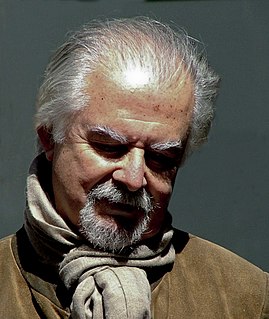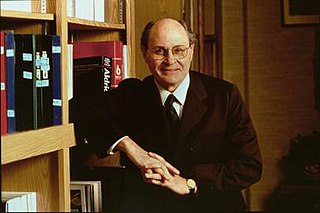A Quote by Jay Parini
My own grandparents came to the United States as immigrants in 1912, and they lived for some years in Italian ghettos in New York. Most immigrant groups start in ghettos somewhere, and many of them never get out.
Related Quotes
Unemployment is higher in Europe than in the United States and primarily concentrated in immigrant minority populations, so people are worried about what's going to happen and if American-style ghettos are emerging in Europe. There are some of the problems there that America sees associated with the lack of economic inclusion - family breakdown, gang behavior, and racial tensions. I get the sense that in Europe they are much more concerned about these issues than in the United States.
Well, when you're an immigrant writer, or an immigrant, you're not always welcome to this country unless you're the right immigrant. If you have a Mexican accent, people look at you like, you know, where do you come from and why don't you go back to where you came from? So, even though I was born in the United States, I never felt at home in the United States. I never felt at home until I moved to the Southwest, where, you know, there's a mix of my culture with the U.S. culture, and that was why I lived in Texas for 25 years.
New York was always more expensive than any other place in the United States, but you could live in New York - and by New York, I mean Manhattan. Brooklyn was the borough of grandparents. We didn't live well. We lived in these horrible places. But you could live in New York. And you didn't have to think about money every second.
So I went to New York City to be born again. It was and remains easy for most Americans to go somewhere else and start anew. I wasn't like my parents. I didn't have any supposedly sacred piece of land or shoals of friends to leave behind. Nowhere has the number zero been of more philisophical value than in the United States.... and when the [train] plunged into a tunnel under New York City, with it's lining of pipes and wires, I was out of the womb and into the birth canal.
For many years the stakes were clear. There were the Arabs attacking us and us defending ourselves, so basically there were no real problems [between the United States and Israel]. Now there are many small cells, and each of them can destroy on their own. Some can arrive at New York and kill thousands of people.
I feel like I have so many amazing opportunities because of my immigrant mother, my immigrant grandparents. There are so many of us who do come from immigrants - even some people who support Trump's travel ban. I think we need to take a step back and realize what the real issues are - it's not being from different places or being different.
One thing that the white man can never give the black man is self respect. The black man in the ghettos, have to start self correcting his own material moral, and spiritual defects, and evil. The black man need to start his own program to get rid of drunkenness, drug addiction and prostitution. The black man in America has to lift up his own sense of values.
I've told the kids in the ghettos that violence won't solve their problems, but then they ask me, and rightly so; "Why does the government use massive doses of violence to bring about the change it wants in the world?" After this I knew that I could no longer speak against the violence in the ghettos without also speaking against the violence of my government.



































